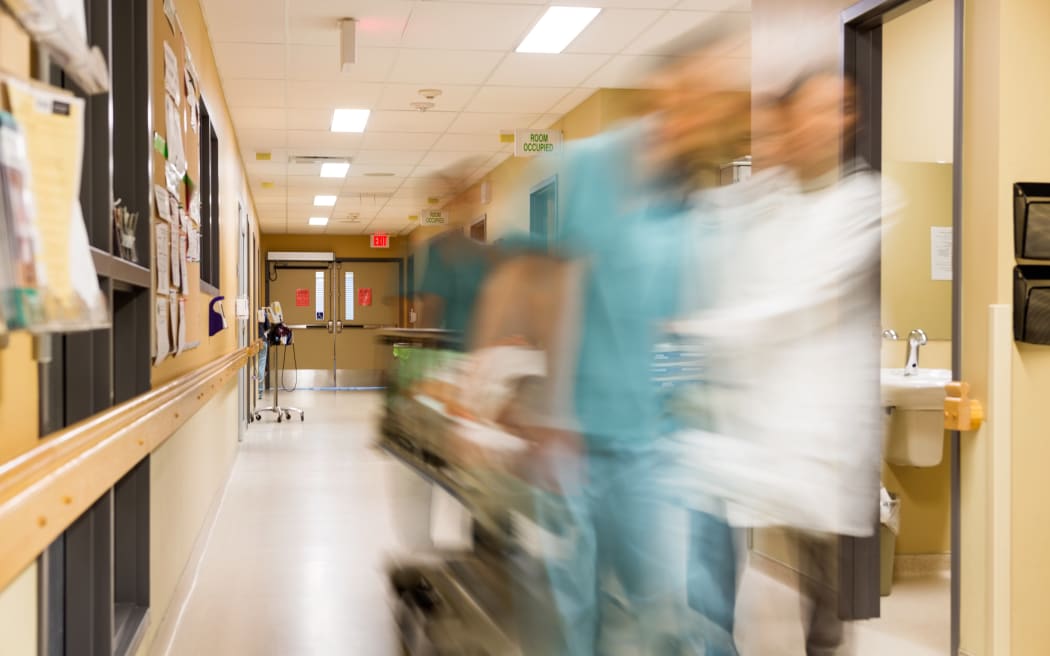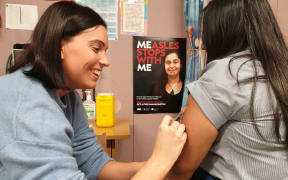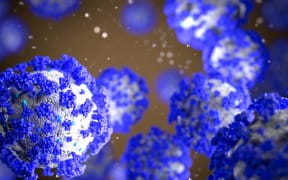
Hospitals say they are still under a massive strain despite dropping Covid-19 cases. Photo: 123rf
Doctors and nurses say they're still working hellish shifts despite a steep drop in Covid-19 cases.
Covid cases and hospitalisations were lower than they had been since February, with the government now looking to ditch the traffic light alert system.
Nurses Organisation president Anne Daniels said there had been no drop-off in workload since Covid cases declined.
She has boots on the ground in a busy emergency department, and said last week she had a "shift from hell".
"You have queues out the doors waiting to be triaged, you've got patients coming in in the ambulances who need to be seen either immediately or in ten minutes because they're a triage 1 or 2, and there are no beds to put them in and the ambulances are sitting there with these patients on their stretchers."
Emergency doctor John Bonning, immediate past president of the Australasian College for Emergency Medicine, said he was seeing the same and hearing it from colleagues around the country.
"You work a shift in an emergency department where literally you've got patients in corridors and unable to get out of ambulances.
"It is really, really stressful and you go away feeling really sorry for the people impacted by that."
News from emergency departments in the past several weeks had zeroed in on the overwhelming loads of patients coming in, exacerbated by Covid and flu.
So why was it still so busy as both of those dropped away?
It was partly because everything else has been delayed, Dr Bonning said.
People who had waited a long time for routine care often came in needing acute help because their condition had declined, he said.
Patients often had more complex conditions which meant they could be longer in EDs, but also longer in wards, meaning fewer beds were free to admit new patients from emergency departments.
Fewer staff were getting sick from Covid and the flu now but there was still an impact, with even one nurse being away on a ward meaning some beds could not be used, he said.
In the community, many GPs were also also flat tack.
West Auckland's Etu Pasifika clinic had supported 1000 Covid patients last month via a call centre.
GP Maryann Heather said it was quieter on the Covid front but they were still very busy with post-Covid or Long Covid treatment plus all the other care that had been delayed during this year's outbreaks.
"We're still trying to play catch-up with making sure they get all their checks in terms of diabetic checks, heart checks, hypertension, asthma," she said.
And one of their biggest priorities was vaccinating children - particularly the many who were late with measles immunisation.
She worried about the impact of an outbreak.
"It's the ones that haven't been vaccinated or are partially vaccinated who are at risk and, again, it's our vulnerable children," she said.
Anne Daniels said the end of the latest Covid and flu wave was not a fix for the health system because problems existed long before.
"Covid just made it visible. It just made all the cracks in the system and the challenges that nurses and doctors and health care workers face very, very visible."






